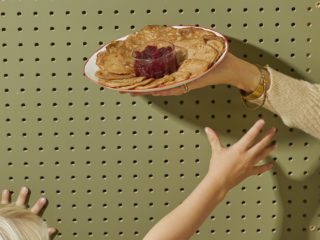We have all been witness to somebody saying “I’m so OCD!” as a means to get a point across that he or she is very particular, detail-oriented and organized. Brands like Obsessive Compulsive Cosmetics have been using this term as a way to market their products as something we ‘need.’
The media has also been throwing around this term, rather carelessly, as being a trait one would aspire to have instead of it being a serious disorder. For example, Khloe Kardashian has a regular segment on her website titled KHLO-C-D. During each segment she demonstrates to her followers how she organizes her cookie jar, packs for an upcoming trip or rearranges her closet. Is such branding an innocent advertising tool, or is it instead stigmatizing to those whom live with this disorder?
The truth is, using this term inaccurately can be quite offensive and hurtful to somebody living with actual Obsessive Compulsive Disorder (OCD). What does it mean to have OCD? Tackling the myths of this serious disorder is the first step to decrease the inaccurate use of the term and bring awareness to those who are suffering.
MYTH: I color coordinate everything and the idea of a messy home makes me anxious. I’m so OCD.
MEANING: Obsessive Compulsive Disorder (OCD) is a serious psychiatric diagnosis that often presents in childhood/adolescence (but can also present later in life). It’s a disorder that is comprised of obsessions with or without compulsions.
What people typically mean when they say “I’m so OCD” is that they are neat, tidy, like everything color-coordinated, organized and ‘just so’. To be more descriptive, wanting things to be ‘just so’ (a common characteristic of many efficient, successful and type A individuals) is a characteristic of your personality. It does not mean you have Obsessive Compulsive Disorder.
… wanting things to be ‘just so’… is a characteristic of your personality. It does not mean you have Obsessive Compulsive Disorder.
Obsessions refer to recurrent, intrusive and persistent thoughts, urges or images that are often unwanted and cause marked anxiety and distress. Common themes in obsessional thoughts include: Violent thoughts (ex: thoughts of killing a loved one), sexual thoughts (ex: unwanted sexual thoughts of children and family members), and thoughts of contamination (ex: thoughts that one will be infested with germs). How distressing would it be to live with such disturbing thoughts?
MYTH: I have disturbing thoughts that I can’t get out of my head no matter how hard I try. Something is terribly wrong with me. Am I a bad person?
MEANING: Although nobody wants to admit it, occasionally we all have random thoughts that are intrusive, come out-of-nowhere and are filled with content that is just plain weird, gross or frightening. That is normal! What happens in OCD is that those thoughts become recurrent, frequent and intrusive. The difference is those living with OCD are not able to pass off these thoughts quickly as ‘odd thoughts’ but often get ‘stuck’ on them, even with every attempt to ignore or suppress them.
MYTH: I don’t count, check or wash my hands repeatedly. I must not ‘be’ OCD.
MEANING: Often (but not necessary for a formal diagnosis) individuals with OCD engage in compulsions as an attempt to suppress the unwanted thought(s) (obsessions) or alleviate anxiety that accompanies the obsessions. A compulsion is a repetitive behavior (ex: hand washing, ordering, repeatedly checking) or mental acts (ex: praying, counting, repeating words silently) that an individual feels driven to perform in response to the thought, urge or image (as discussed above). These repetitive behaviors or mental acts are often unrelated to the actual obsessional and intrusive thoughts and can take up a significant amount of time. It is already so difficult to get up in the morning, imagine if you felt the need to engage in repetitive behaviors in order to be able to start the day off distress-free?
Together we can start using the appropriate terminology and dropping seemingly harmless sayings from our vocabulary. Next time you hear the phrase “I’m so OCD” being used by a friend, try informing them of what having OCD actually means … even if Khloe Kardashian considers OCD a ‘blessing’. As a result, you’ll increase awareness in those surrounding you. Together, we can make a difference.
Image via Michelle Madsen












4 comments
I truly appreciate this article. My ten year old son has OCD and it makes his life extremely difficult. I’ll tell a parent of a friend about his disorder and they’ll say “Oh my gosh, I have OCD too! I cannot stand how my kids throw their stuff everywhere!”. I just nod and grin, because trying to explain it never seems to work. My poor child lives in real torment and it’s something that no one but another person suffering from this disorder can understand. Even I, who sees his daily struggles, cannot truly comprehend his feelings and mental anguish. I really hope more people try to do away with using such terms so loosely.
Thank you for writing this article and for attempting to understand what it means to suffer from OCD.
I think the millenial’s generation is full of people who self- and mis-diagnose themselves as bipolar or OCD. It’s irresponsible and insensitive to the real mental illness and those who struggle with it. I know several people who truly do suffer from these illnesses and I think articles like yours can really help bring greater awareness and understanding about their conditions. Thank you!
http://www.thebusinessofblooming.com
I so appreciated this thoughtful piece. I think the same folks who wrongly self-diagnose themselves with OCD (and incorrectly and ignorantly throw the term around) also wrongly self-diagnose themselves (and incorrectly and ignorantly throw the term around) with anxiety. As someone who suffers from severe anxiety, it’s annoying to hear others who I know for a fact do not suffer from anxiety talk about their supposed anxiety. The same can also be said for bipolar disorder. How many times do we hear others say “He/She is SO bipolar”? It is often those who really do suffer from mental disorders that feel ashamed to come forward about their disorders and talk about them openly, for fear of judgement. Unfortunately, mental health and mental disorders have become so stigmatized. More awareness for the sensitivity and suffering of those affected by mental health disorders is needed, and I wholeheartedly applaud Darling for spearheading this effort. Thank you for taking on the not-so-pretty issues of life, Darling.
I just came across this particular article, and am grateful I did. I wholeheartedly agree! I am grateful to Darling for talking about these issues and the reality people are facing. My mom is a cognitive therapist, and so I’ve had the opportunity to learn a little more about these issues and how they are mis-represented in our culture. And, like you mentioned, I have an actual anxiety disorder and become frustrated when someone else says “oh, me too! I get so anxious about X, Y, or Z”. Just like wanting things to be a certain way is not true OCD, there is a difference between normal anxiety and severe anxiety or anxiety disorders. And, this would be true about all mental health disorders….We ALL experience anxiety, depression, etc to some extent, it’s part of being human, but when it becomes a DISorder it’s an entirely different matter and one that shouldn’t be so easily tossed around in our common, every day language.
Thank you Darling for bringing more awareness to this and reminding us all to be more sensitive! Thank you for bringing to light mental health disorders and making it less taboo to discuss!